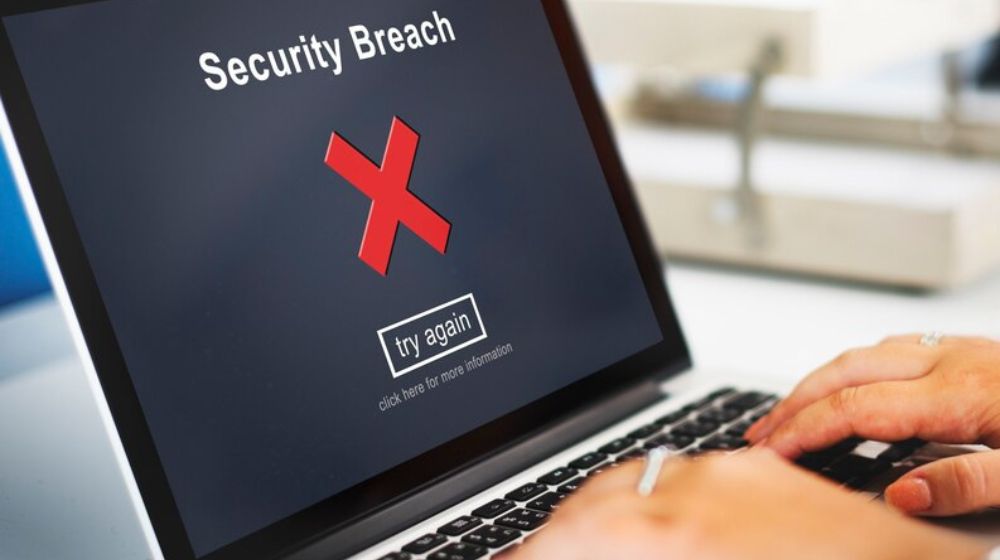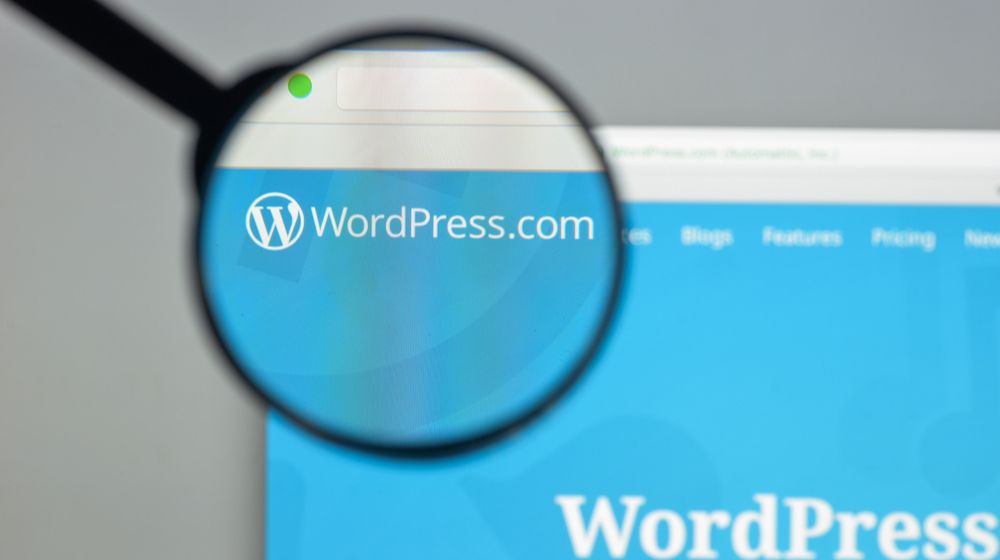Website Security Guide 2024: How To Secure Your Website From Spam & Hackers
In the rapidly evolving digital landscape of 2024, websites have become an integral part of businesses and individuals alike. They serve as a virtual storefront, communication hub, and data repository. However, with the increased threat of security breaches, spam attacks, and hacking attempts, ensuring your website security is more critical than ever.
In this comprehensive guide, we'll delve into the common website security vulnerabilities of 2024 and provide actionable solutions to keep your online presence safe from spam and hackers.
What is Web Security?

Website security, often referred to as web security, encompasses a series of strategies, tools, and practices to protect websites from various online threats & vulnerabilities. This essential facet of upholding an online presence centers on guaranteeing the privacy, authenticity, and accessibility of a website's data and features.
In the modern digital landscape, where cyber threats like malware, phishing attacks, and hacking attempts are rampant, website security has gained paramount importance. Implementing the best website security methods and utilizing reliable website security solutions is essential to safeguard sensitive data, prevent unauthorized access, & maintain the trust of users.
Undoubtedly, the significance of website security cannot be downplayed. It directly affects website safety, reach, and user trust. Here are the top 7 reasons highlighting the importance of robust website security:
- Data Protection:
Website security safeguards sensitive data, preventing unauthorized access and maintaining privacy.
- Trust Building:
Strong security fosters user trust, enhancing credibility and encouraging engagement.
- Prevent Hacks:
Website security thwarts hacking attempts, safeguarding against breaches and financial losses.
- Business Reputation:
Secure sites preserve the brand image, preventing cyberattacks that could damage reputation.
- Legal Compliance:
Adhering to security guidelines ensures data protection regulations are met, avoiding legal consequences.
- E-commerce Safety:
Secure e-commerce sites protect customer payments, preventing fraud and ensuring safe transactions.
- SEO Benefits:
Search engines prioritize secure websites, improving rankings and online visibility.
The Most Common Website Security Threats 2024

To effectively guard your website against cyber threats, it's crucial to understand the threats that every website owner should be aware of:
- Malware Infections
Malware or malicious software can be injected into your website's code through vulnerabilities. It can cause your website to behave unexpectedly, spread malware to visitors, or even steal sensitive information.
- Phishing Attacks
Phishing involves tricking users into revealing their personal or sensitive information, including login credentials & credit card details, posing as a legitimate entity. This is often done through deceptive emails, messages, or fake websites.
- Brute Force Attacks
Hackers use automated tools to guess passwords repeatedly until they find the correct one. This method can give them unauthorized access to your website's admin area.
- SQL Injection
Hackers exploit poorly sanitized inputs to manipulate SQL queries and gain unauthorized access to databases. Utilizing parameterized queries and input validation can thwart SQL injection attempts.
- Cross-Site Scripting (XSS)
XSS attacks involve injecting malicious scripts into websites that unsuspecting users then execute. Continuously validate and sanitize user inputs to prevent XSS attacks and use security mechanisms like Content Security Policy (CSP).
- Outdated Software
Failing to keep your website's software, plugins, and frameworks up to date leaves you vulnerable to known security exploits. Regularly update all components to the latest versions.
WordPress Website Security Threats & Solutions

WordPress is a widely used platform for creating websites, but like any online system, it's not immune to security threats. Understanding these potential threats and protecting your WordPress website is essential for a safe and smooth online experience.
Here are some key security issues associated with WordPress:
- Outdated Plugins & Themes:
Using outdated plugins and themes exposes website security vulnerabilities that hackers can leverage to compromise your website's safety and steal sensitive data.
- Poor Administrator Credentials:
Default "admin" usernames and weak passwords are prime targets for brute-force attacks, granting unauthorized access to your website's backend.
- Insufficient Backup Practices:
Failing to maintain regular backups leaves your website security vulnerable to data loss in the event of a breach or technical failure.
- Poor User Access Control:
Mismanaged user access permissions allow unauthorized individuals to manipulate your website, potentially causing significant damage.
- Inadequate Security Plugins:
Opting for unreliable or outdated security plugins leaves gaps in your website's defense, making it easier for cybercriminals to breach your security.
Best Website Security Methods for WordPress in 2024
Follow these website security guidelines to prevent the attacks:
- Update Plugins & Themes
Regularly update plugins and themes from trusted sources. Remove unused plugins to minimize potential vulnerabilities.
- Enforce User Access Control:
Assign user roles and permissions carefully to ensure that only authorized people will have access to sensitive areas for enhanced Website Safety.
- Strengthen Administrator Credentials:
Use highly encrypted passwords with a combination of letters, numbers, and symbols.
- Two-Factor Authentication (2FA):
Enable the 2 Factor Authentication to add an extra layer of protection against unauthorized access.
- Disable XML-RPC:
Deactivate XML-RPC to prevent attackers from using it as an entry point for malicious activities.
- Regular Audits for Security :
Use consistent security evaluations to uncover vulnerabilities and mitigate potential website code weaknesses.
E-commerce Website Security Threats & Solutions

Running an e-commerce website opens up exciting opportunities for online business, but it also exposes you to various security risks. Safeguarding your e-commerce platform is crucial to protect both your customers' sensitive information and your reputation. Let's explore common threats and effective solutions to ensure the security of your e-commerce website.
Here's the list of website security threats:
- Payment Card Fraud
Hackers target credit card information, potentially leading to financial losses for both your customers and your business.
- Data Breaches
Sensitive customer data can be compromised, eroding trust and damaging your reputation. Prioritize the use of the best website security software to protect against breaches.
- Phishing Attacks
Cybercriminals employ fraudulent websites or emails to deceive users into revealing sensitive information.
- DDoS Attacks
Distributed Denial of Service attacks overloads your website with traffic, causing downtime and negatively impacting user experience.
- Malware Infections
Malicious software infiltrates your website, affecting functionality and possibly stealing customer data.
Best Website Security Methods for E-commerce in 2024
Follow these website security guidelines to prevent the attacks:
- Encrypt Sensitive Data:
Employ SSL encryption to secure customer data during transmission and prevent unauthorized access, promoting website safety.
- Implement Payment Security:
Adhere to Payment Card Industry Data Security Standard (PCI DSS) guidelines to safeguard customer payment information and ensure website safety.
- Regular Malware Scanning:
Utilize the best website security software to scan your site frequently for malware, ensuring timely detection and removal for enhanced website safety.
- Regular Security Audits:
Perform routine security audits to detect vulnerabilities and rectify potential flaws within your website's code.
- Security Incident Response Plan:
Develop comprehensive & best website security methods to respond to incidents promptly and effectively, preserving website safety.
PHP Security Vulnerabilities: The Threats & Solutions

PHP is a widely used programming language for web development, powering countless websites and applications. However, like any software, PHP is not immune to security vulnerabilities. Understanding these vulnerabilities and knowing how to address them is essential for maintaining the security and integrity of your web applications.
Here are some common PHP security concerns:
- SQL Injection
Attackers exploit inadequate input handling, injecting malicious SQL queries that can manipulate databases and potentially lead to unauthorized access.
- XSS
Malicious scripts injected into web pages target the users who interact with compromised content, risking their security. To mitigate this, employ output encoding, a vital component of the best website security software, to sanitize user inputs and prevent script execution.
- Remote Code Execution
Weak PHP code allows attackers to execute unauthorized code on your server, leading to system breaches.
- File Inclusion Vulnerabilities
Improper handling of user inputs can lead to the inclusion of malicious files, potentially resulting in unauthorized actions or data breaches.
- Insecure Session Management
Poor session management can enable attackers to hijack user sessions, gaining unauthorized access to accounts.
Effective PHP Website Security Guide for 2024
PHP vulnerabilities can compromise your website's security. Here's how to address them:
- Update PHP Version:
Keep your PHP version up to date to leverage the best website security methods, patches, and enhancements, an integral part of website safety.
- Prepared Statements:
Utilize prepared statements and parameterized queries to prevent SQL injection attacks by treating user inputs as data rather than executable code
- Strong Session Management:
Implement secure session handling mechanisms, including session timeouts and secure cookies, to mitigate session hijacking risks and bolster website safety.
- Input Validation:
Always validate user inputs to prevent potential attacks like SQL injection and XSS. Use functions like htmlspecialchars() to escape user inputs.
- Implement Content Security Policy (CSP):
Utilize CSP to control the content sources allowed to load, reducing the risk of XSS attacks and aligning with website safety.
Understanding Static & Dynamic Websites

Static Website
A static website consists of fixed HTML files that display the same content to every visitor. These sites are ideal for showcasing simple information, such as company portfolios or event details. It is built using HTML and CSS, offering fast loading times and enhanced security due to reduced complexity. Content updates require manual editing by developers, making it suitable for sites with infrequent changes, such as personal blogs, portfolios, and informational sites.
Dynamic Website
A dynamic website is an interactive online platform that generates content on-the-fly based on user interactions or data inputs. Dynamic websites use server-side scripting languages like PHP, Python, or Ruby to fetch and display information from databases or external sources, enabling personalized content and user experiences. They support features like user accounts, e-commerce functionality, and real-time data processing. Content updates are automated, allowing for easy and frequent changes. Dynamic websites are suitable for platforms that require user engagement, data manipulation, and complex functionality, such as e-commerce stores, social media platforms, and online applications.
Secure Your Static Website with this Website Security Guide

Here are the top 6 website security solutions to safeguard your static website:
- Choose Reliable Hosting
Choose a reputable hosting provider that prioritizes website safety, offering security features and regular updates to safeguard your online presence.
- Update Software Regularly
Keep your CMS, plugins, and software up to date. Regular updates address vulnerabilities and reinforce your website's safety.
- Use Strong Passwords
Enhance website security by securing admin accounts with strong, unique passwords, minimizing the risk of unauthorized access.
- Implement SSL Encryptions
Prioritize website safety with SSL encryption, even for static sites, ensuring secure data transmission and user confidence.
- Monitor Activities Closely
Vigilantly review server logs and website analytics to swiftly identify any unusual or suspicious activity, reinforcing website safety.
- Backup Regularly
Ensure website safety by frequently backing up static website files and databases, ensuring a prompt recovery strategy for potential breaches.
The Ultimate Website Security Checklist 2024

Whether you manage a static, dynamic, WordPress, or e-commerce website, this comprehensive security checklist featuring the top 6 measures will fortify your online presence against evolving threats:
- Regular Software Updates:
Keep your CMS, plugins, themes, and frameworks updated to tackle vulnerabilities and ensure the best website security software integration.
- Strong Authentication Practices:
Employ robust authentication methods like two-factor authentication (2FA) and complex passwords to bolster access security and thwart unauthorized logins.
- SSL Encryption:
Elevate data security with SSL encryption, which is crucial for safeguarding sensitive information during user-server interactions and maintaining your website security.
- Regular Backups:
Implement routine backups, adhering to the best website security methods. Store copies off-site for a swift recovery from breaches or data loss.
- Secure Hosting Provider:
Opt for a trusted hosting partner offering security features, regular updates, and vigilant monitoring, aligning with your website security guidelines.
- Vulnerability Scanning:
Conduct regular vulnerability scans to identify potential weaknesses in your website's code and configuration.
Conclusion
In conclusion, website security is an ongoing effort that demands attention and proactive measures. By addressing common vulnerabilities, implementing best practices, & staying updated about the latest threats, you can create a robust defense against spam and hackers. Protecting your website ensures your data's safety and preserves your users' trust in an increasingly digital world.
For customized guidance and solutions, connect with Marolix - the best web design company in Hyderabad to tackle the 2024 threat landscape. Enhance website security today for a secure tomorrow.

























